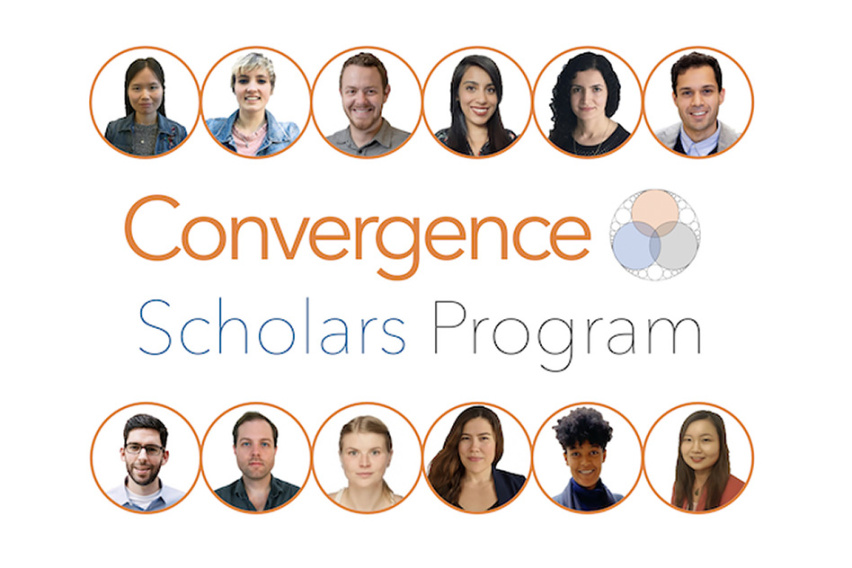
MIT Koch Institute
October 28, 2020
The Marble Center for Cancer Nanomedicine and the MIT Center for Precision Cancer Medicine are pleased to announce the 2020-2021 class of Convergence Scholars. The Convergence Scholars Program (CSP) provides postdoctoral trainees with opportunities to further their experiences and skills beyond the research laboratory. Scholars will learn more about science project development, policy, technology transfer, education and outreach, business and finances, industry, and the clinic.
At the core of CSP are activities to advance the scholars' communication and management skills, as well as to focus on the translational impact of their work. Participant activities and benefits include workshops on management and leadership, deeper engagement with industry, and professional development activities. Supplementing the primary benefit of leadership training and an enhanced perspective in science communication and management, postdoctoral trainees participating in the program will receive a stipend to support additional professional development activities.
The Convergence Scholars for this academic year are:
- Jeffrey Davis, Vander Heiden Lab: Jeff studies the metabolic programs that determine cell fate acquisition and differentiation potential in development and cancer.
- Daniel Goulet, Hemann Lab: Using a mouse model of B-cell acute lymphoblastic leukemia, Daniel’s work aims at identifying the tumor cell intrinsic and extrinsic factors that contribute to drug resistance.
- Shengnan Huang, Belcher Lab: Shengnan is developing a label-free noninvasive imaging approach for early tumor detection, and leveraging this platform to monitor draining lymph nodes as an indicator for assessing the therapeutic treatment of ovarian cancer.
- Siddharth Krishnan, Anderson Lab: Siddharth is developing microfabricated device systems for dosed, electronic drug delivery with applications in cancer and diabetes; he is also researching bioelectronic encapsulation devices for cell-therapies with broad applications including cancer immunotherapy.
- Jasmin Kruell, Koehler Lab: Jasmin’s research is focused on targeting the transcription factor Myb using small molecules in acute myeloid leukemia.
- Nicholas Lamson, Hammond Lab: Nicholas is developing novel layer-by-layer nanoparticles for more effective treatment of glioblastoma, with a particular focus on enhancing delivery across the blood brain and blood tumor barriers, as well as exploring novel drug combinations.
- Ingred Goretti Rica, Yaffe Lab: Ingred is studying the role of a specific population of neutrophils with immunosuppressive properties in the tumor microenvironment and trauma.
- Tahoura Samad, Bhatia Lab: Tahoura is leveraging novel targeting and selective activation strategies for the treatment of cancer and infection.
- Alice Stanton, Langer Lab: Alice is engineering a physiological model of the brain (miBrain-chip) to develop an interrogable, monitorable brain that can be used to understand mechanisms of disease, test treatments, and discover new therapeutic targets.
- Tigist Tamir, White Lab: In her work, Tigist uses a multi-omics approach to understand functional modifications on proteins in cancer resistance.
- Parisa Yousefpour, Irvine Lab: Parisa is developing regulated RNA therapeutics for delivery of immunological payloads for the treatment of cancer and HIV.
- Ye Zhang, Manalis Lab: Ye is developing and utilizing microfluidic platforms to measure biophysical properties of tumor cells.